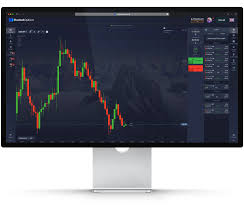
If you’re a trader using pocket option tax form Pocket Option Deutschland, understanding the tax implications of your earnings is crucial. As a trader, especially in online platforms like Pocket Option, you might find yourself grappling with the complexities of tax forms. In this detailed guide, we’ll break down everything you need to know about pocket option tax forms, including how to report your earnings, what documents to gather, and tips for staying compliant with tax regulations.
Understanding Pocket Option and Your Tax Obligations
Pocket Option is a popular trading platform that enables users to trade various financial instruments, including forex, commodities, and cryptocurrencies. Like any other income-generating activity, trading on Pocket Option comes with tax responsibilities. Depending on your country of residence, the rules can vary significantly. This section will provide a foundational understanding of how you can navigate these regulations.
Why You Need a Pocket Option Tax Form
When trading, you need to keep records of your earnings and losses. A Pocket Option tax form serves several purposes:
- Documenting Earnings: This form will help you report the income you earn from trading activities accurately.
- Tracking Losses: If you incur losses, documenting these appropriately can allow you to offset these against your earnings to reduce your taxable income.
- Compliance: Most countries require that you declare income from all sources, including online trading platforms like Pocket Option. Submitting the correct forms is vital for compliance and can help you avoid penalties.
How to Obtain Your Pocket Option Tax Form
Obtaining your Pocket Option tax form is relatively straightforward. Here are the steps to follow:
- Login to Your Pocket Option Account: Start by logging into your Pocket Option account using your credentials.
- Navigate to the Reporting Section: Most trading platforms have a dedicated section for financial reports. Look for tabs labeled ‘Account,’ ‘Reports,’ or ‘Statements.’
- Download Your Financial Statement: You should be able to download your earnings, losses, and other transactional data for the tax year. This document will serve as the basis for your tax form.
Filling Out Your Pocket Option Tax Form
Once you have your financial statement, you can begin filling out your tax form. Here are some crucial details to include:
- Total Earnings: Report your total income from trading activities.
- Total Losses: Include any losses you have incurred from trades.
- Relevant Dates: Ensure date information correlates with your financial records.
- Your Trading Strategy: Some tax authorities may ask for details about your trading strategy, especially if it affects how your income is taxed.
Tax Regulations by Country

Tax regulations vary by country, and it’s essential to be aware of the specific rules applicable in your jurisdiction. Here’s an overview of how different countries handle taxes for online trading:
United States
In the U.S., earnings from trading are typically classified as capital gains, and you may need to fill out Schedule D and Form 8949 alongside your 1040 tax return. The IRS requires you to report both short-term and long-term gains and losses.
United Kingdom
In the UK, if you’re trading as an individual investor, profits may be subject to Capital Gains Tax, whereas profits from trading as a business could be subject to Income Tax. Keeping detailed records is essential for self-assessment.
Germany
In Germany, for instance, capital gains tax applies to profits made from trading activities. As an individual trader, you need to report your earnings in your annual income tax return.
Common Mistakes to Avoid
When filling out your Pocket Option tax form, it’s easy to make mistakes that could lead to complications with tax authorities. Here are some common pitfalls to watch out for:
- Neglecting to report all income: Avoid the temptation to omit smaller earnings as they can add up and may raise flags with tax authorities.
- Not keeping detailed records: Failing to track trades accurately can lead to discrepancies in your reports.
- Missing deadlines: Ensure you know the filing deadlines for your country and submit your forms on time to avoid penalties.
The Benefits of Consulting a Tax Professional
While the information in this guide is a great starting point, consider consulting a tax professional for personalized advice tailored to your specific situation. Tax advisors can:
- Help ensure compliance with local tax laws.
- Advise on strategies to minimize your tax liabilities.
- Assist you in understanding complex trading tax issues and how they apply to your trading activities.
Conclusion
Filling out your Pocket Option tax form is an essential part of your trading journey. Understanding your tax obligations not only keeps you compliant but also helps you manage your finances effectively. By keeping accurate records, filling out your forms correctly, and staying informed about regulations, you can trade with confidence. Remember, consulting a tax professional can provide you with added guidance and peace of mind.
